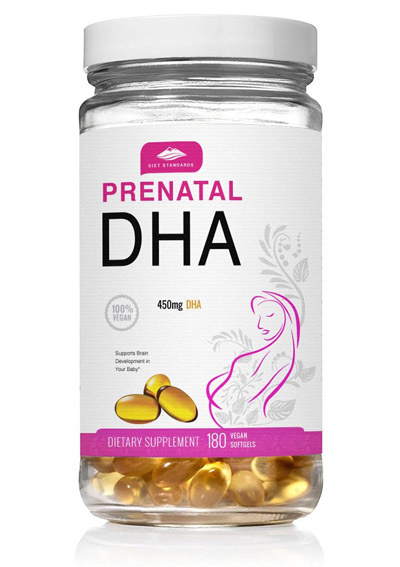What is DHA?
Don’t worry if you haven’t heard of DHA before! This important source of vital omega-3 fatty acids is usually hard at work behind the scenes making sure your heart and circulatory system operate correctly.
Though DHA can be found in fish, most people do not get enough of it from their diets. In fact, some studies say that only about 2% of people have optimal levels of omega-3s!
In addition to being necessary for optimal health, DHA has also been shown to help with fetal brain and eye development. This makes it especially important for pregnant women. That’s why it’s important to choose the best DHA supplement for pregnancy.
Because it is so important and because the vast majority of people do not get enough omega-3s from diet alone, many women choose to supplement DHA before and during pregnancy and while breastfeeding.
We Recommend Diet Standards Prenatal DHA
So what is the best prenatal DHA supplement on the market?
We recommend Diet Standards Prenatal DHA.
Why?
This is a high-quality supplement that meets all of the criteria outlined above.
It is an easily absorbed, ethical DHA supplement that has already met the needs of thousands of pregnant women. In fact, it provides 450 mg of DHA, which is more than 200% of the daily recommended minimum value.
Since this supplement uses algal oil, you don’t need to worry if you are vegan or vegetarian. You can still get your DHA without compromising your way of eating. You can also rest assured knowing that the oil will be easily absorbed by you and your baby.
All of this makes Diet Standards Prenatal DHA the best supplement if you want to ensure your baby is getting all of the omega-3 necessary for healthy brain development.
Just remember that it is meant to be taken in addition to not in place of a prenatal multivitamin!
What’s the difference between a Prenatal Multivitamin and Prenatal DHA?
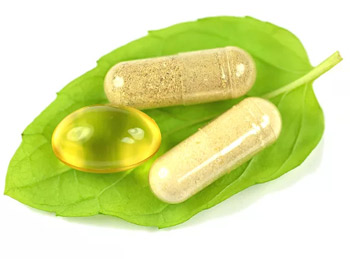
You may be thinking to yourself: But wait, doesn’t my prenatal vitamin supply all of the vitamins and minerals I need for pregnancy?
Not quite!
Prenatal multivitamins and prenatal DHA supplements are NOT the same!
A select few prenatal multivitamins do contain DHA but most, however, do not. Likewise, most prenatal DHA supplements are not multivitamins.
Essentially, there is some occasional overlap, but prenatal multivitamins and prenatal DHA are usually separate supplements.
For most pregnant women, the best bet is to take both a prenatal multivitamin and a prenatal DHA supplement. As with most things, however, it is always best to talk with your doctor about any supplements you take or are planning to take.
What does Prenatal DHA do?
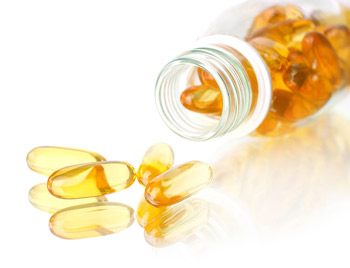
Prenatal DHA adds docosahexaenoic acid, an omega-3 fatty acid, to your diet. While this essential nutrient can be found in nature, most natural sources are high in mercury and other toxins. For example, the most common sources are fish including herring, salmon, trout, and halibut.
Obviously, having large quantities of toxic, heavy metals during pregnancy is far from ideal. Many women also do not like the taste of fish and have a hard time eating even small servings. In addition, many vegetarian and vegan women forgo fish altogether.
Yet, a pregnant woman needs about 200 mg of DHA every day in order to keep herself healthy and ensure her baby is developing well. That’s a lot of DHA! You would need to eat a LOT of fish EVERY day to get that much.
Rather than choke down lots of slimy, potentially toxic fish or compromise your established way of eating, you can simply take a DHA supplement. This is an easy way to ensure that you and your baby are staying healthy! It can also allow you to concentrate on other, more fun things like that pregnancy photo shoot or compiling that name list.
Why is Taking Prenatal DHA so Important?

As you have probably realized by this point, it is really, really difficult to get the proper amount of DHA from your diet alone. And, even if you spent a lot of time, money, and energy trying to do that, you will probably still expose yourself to large quantities of toxins.
But DHA is incredibly important for a developing fetus. It directly contributes to the development of the brain and eyes. It can also help to reduce the risk of preterm birth, which is associated with a wide range of problems for baby. The easiest way to get all of these benefits is to take a supplement.
But that’s not the only benefit! A DHA supplement can also help make pregnancy physically easier for mom. DHA has been shown to fight inflammation and improve muscle recovery after exercise. It can, consequently, help with the soreness associated with pregnancy.
Supplements have also been shown to help with mental health and may aid women during this time of rapid change and stress.
Are there different types of Prenatal DHA?
The most common sources of prenatal DHA supplements are fish oil, processed fish oil, krill oil, mussel oil, mammalian oil, ALA oil, and algal oil.
Fish Oil:
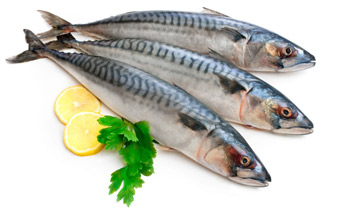
Fish oil is basically the closest thing you can get to eating fish. People like this option because it is more natural and often contains vitamins A and D in addition to DHA. It’s a great way to get the benefits of fish without dealing with the taste of fish. It does, however, pose a strong mercury contamination risk.
Processed Fish Oil:
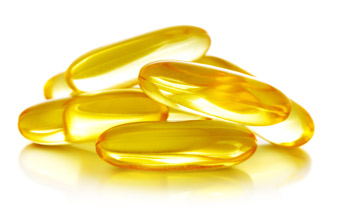
Processed fish oil is highly concentrated and highly affordable. Unlike its natural fish oil cousin, it poses little risk of contamination. Unfortunately, however, it is not as readily absorbed by the human body when it is in an ethyl ester for, which is the most common form of processed fish oil.
Krill Oil
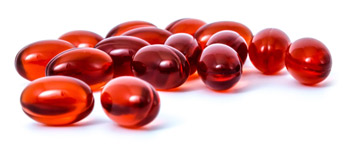
As the name suggests, krill oil is extracted from krill. It is both easily absorbed and low in mercury and other contaminants. The main downside is that it is neither vegan nor vegetarian friendly. Here are our recommendations for vegetarians and vegans.
Mussel Oil
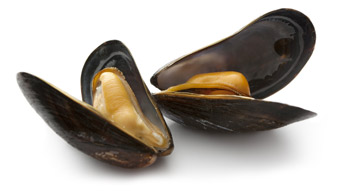
Mussel oil comes from the green-lipped mussel, which is native to New Zealand. Though it is one of the most ecologically friendly natural forms of DHA, it is still not a good choice for vegans and vegetarians.
Mammalian Oil

This form of DHA comes from seal blubber. It can contain large amounts of mercury and other toxins since seals are high on the food chain. It also — you know — involves killing seals…
ALA Oil
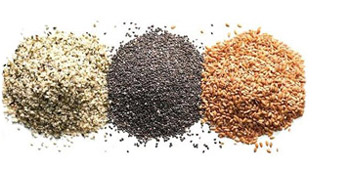
Finally! A vegan friendly form of omega-3!
ALA oil is found in seeds such as flax, chia, and hemp.
Is it too good to be true?
Sadly, yes. ALA oil is not very easily or efficiently absorbed by the human body. ALA oil also tends to contain more omega-6, which is known to cause inflammation.
Algal Oil
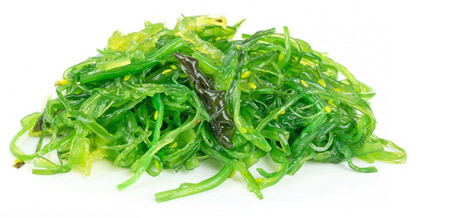
The real winner of the DHA oil contest?
Algal oil.
It checks all of the boxes.
Low in toxins? Check.
Easily absorbed? Check.
Vegan and vegetarian friendly? Check.
Environmentally friendly? Check.
In general, algal oil DHA supplements are the way to go.
Popular Articles on ComproGear
Rose Toy Women Claim This Viral Sex Toy Brings Them Record-Speed Orgasms
What to look out for when choosing a brand.
A quick Google search will tell you that there are a lot of DHA supplements on the market. How do you even begin to sort through them?
For starters, you want to look for a supplement that is both low in toxins and easily absorbed. Algal oil tends to be the best bet.
Secondly, you want to look for a DHA supplement that meets the elevated omega-3 needs of expecting mothers. That is, your DHA supplement should provide a minimum of 200mg of DHA. A higher dose, however, is generally better.
Finally, you want to make sure that your DHA supplement is ethically sourced and meets your dietary standards. In particular, vegans and vegetarians need to double check the source of the DHA in their supplements.
Diet Standards Prenatal DHA
So what is the best prenatal DHA supplement on the market?
We recommend Diet Standards Prenatal DHA.
Why?
This is a high-quality supplement that meets all of the criteria outlined above.
It is an easily absorbed, ethical DHA supplement that has already met the needs of thousands of pregnant women. In fact, it provides 450 mg of DHA, which is more than 200% of the daily recommended minimum value.
Since this supplement uses algal oil, you don’t need to worry if you are vegan or vegetarian. You can still get your DHA without compromising your way of eating. You can also rest assured knowing that the oil will be easily absorbed by you and your baby.
All of this makes Diet Standards Prenatal DHA the best supplement if you want to ensure your baby is getting all of the omega-3 necessary for healthy brain development.
Just remember that it is meant to be taken in addition to not in place of a prenatal multivitamin!
When Should Someone Start Taking prenatal DHA?

The best time to start taking prenatal DHA is before becoming pregnant. If you take prenatal DHA (and prenatal multivitamins) before conception, you can ensure that you are at your peak health and that you have extra stores of nutrition at the ready for your baby as soon as you conceive.
Does that mean it’s too late and all is lost if you don’t take it in advance?
Of course not!
Even if you are almost ready to give birth, it is never too late to start taking prenatal DHA supplements. In fact, a lot of your baby’s brain growth happens in the last few weeks before birth. It is better to start later in pregnancy and get some DHA than to not take any at all!
Should You Stop Taking DHA After Giving Birth

One of the things that most surprises new mamas who breastfeed is that they actually need to eat MORE than they did when they were pregnant.
That’s right. The general recommendation is that pregnant mamas eat 300 extra calories a day and that lactating mamas eat an extra 500 calories.
Needless to say, then, breastfeeding ladies need supplements, just like pregnant ladies. In fact, they might need them even more!
And DHA supplements are no exception. It is best to continue taking DHA supplements after birth and for as long as you choose to breastfeed your baby. And, for that matter, keep taking your prenatal multivitamin while you are at it.
What if you are not Pregnant or Breastfeeding?

Although DHA supplements are super important to ensure adequate brain development in babies, omega-3 has lots of benefits for adults too. Remember, only 2% of adults are getting enough of it!
In particular, DHA supplementation has been associated with decreased risk of heart disease, improved ADHD symptoms, lower inflammation, muscle recovery, less cancer risk, Alzheimer’s prevention, better blood pressure, and positive mental health outcomes.
Notably, omega-3s have been shown to improve men’s reproductive health.
That’s right. DHA supplementation is not just for women.
Just because you don’t plan to have a baby any time soon doesn’t mean that DHA supplements are not for you. In fact, almost everyone can benefit from having more omega-3 in their lives!
Conclusion
Omega-3s are important for everyone, especially pregnant women and developing fetuses. If you want to improve your health and/or make sure that your baby has healthy brain development, you should consider a DHA supplement to get more omega-3 fatty acids in your life.
In particular, we recommend supplementing with Diet Standards Prenatal DHA because it provides everything you need from a DHA supplement and nothing you don’t in an ethical package. It has also been trusted by thousands of pregnant and breastfeeding mamas around the world!
This page last updated May 16, 2022
